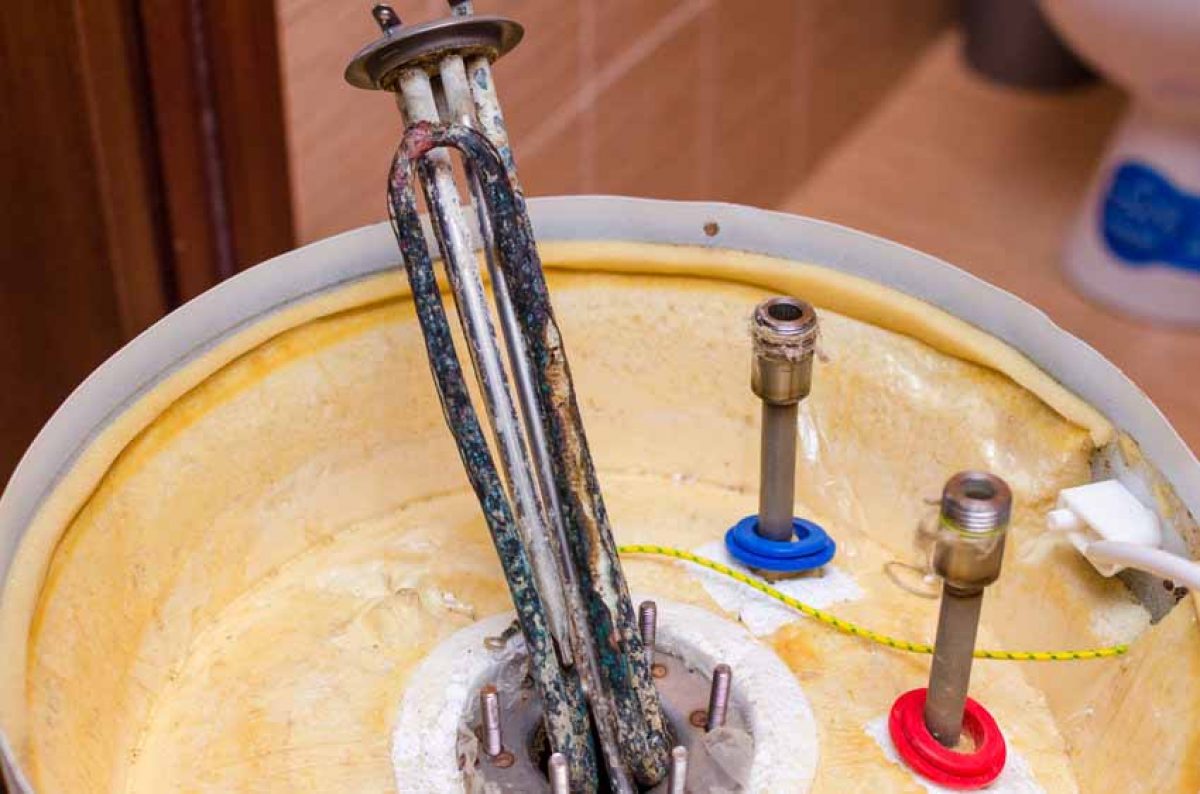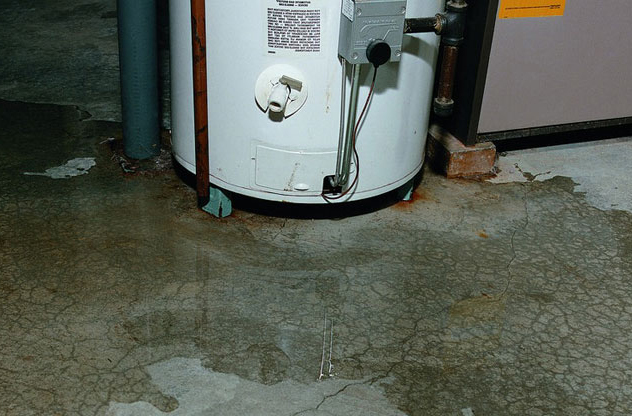Important Advice for Residential Property Owners Managing Faulty Heating Units
Important Advice for Residential Property Owners Managing Faulty Heating Units
Blog Article
This great article listed below in relation to Broken Water Heaters is definitely fascinating. Don't skip it.

Whether it is situated in the basement or a different room, damaged water heating systems can create stress. Having no warm water supply is additionally bothersome.
Call the Plumber
After doing the initial two safety and security steps, you must call your plumber to come right away to take care of a burst water heater. There are generally indications that your aging water heating system has debris build-up in the interior.
Instead, as quickly as you spot these indicators, have an expert come to inspect your water heating system storage tank. Generally, water heaters have a life-span of concerning 8 to 12 years.
Cut Off the Cold Water Supply
Cut off the storage tanks faucet water supply from the source. This goes from your primary water line right into the storage tank. When your container is in good condition, the cold water quits filling up when the container is complete. Since it is leaking, the water will continue to stream. Close the shutoff discovered at the top of the heating system. Revolve this clockwise to close it off. If you can not locate it or reach it, you should turn off that primary water supply line outside your property.
Shut Down Source Of Power
Before calling the plumber, shut down a gas hot water heater by transforming the temperature dial. This is generally found on top of the thermostat. If you have a design that runs on electric power, turn off the circuit breaker. This will stop electrocution, especially if there is a leakage as water is a conductor. Typically, the heating element shuts down when the water hits a certain temperature. However with a damaged storage tank, it may malfunction. Sufficing off assures you stay safe.
Clean Up Residential or commercial property
After calling the plumber, document damages by remembering and also photos so you can assert your house owner's insurance coverage. From there, begin the instant cleaning. Get any type of important personal belongings to prevent further saturating. After that, get rid of any standing water to prevent mold as well as mildew development. Utilize that to drain pipes the water if you have a completely submersible water pump. Or else, the traditional container method will additionally function. Try to mop out every little thing, including walls as well as walls. Keep them running to maintain air flowing if you have an electric fan as well as dehumidifier. This will certainly assist hinder mold development.
Remember, if you notice any kind of concerns with your hot water heater, call the pros as soon as possible. You can not take this problem lightly because a malfunctioning thermostat can elevate water temp to an alarmingly high level, causing unintended burns. A damaged heater stress relief valve can likewise create an explosion. For finest outcomes, get an annual check so your unit obtains evaluated, cleansed, drained, and refilled, ensuring ideal performance.
After doing the initial two security actions, you must call your plumber to come right away to take care of a fractured water heater. Instead, as soon as you find these indications, have actually an expert come to check your water heating system container. Prior to calling the plumber, closed off a gas water heating unit by turning the temperature dial. If you have a submersible water pump, make use of that to drain the water. Remember, if you observe any type of problems with your water heating system, call the pros right away.
8 REASONS YOUR HOT WATER HEATER IS NOT WORKING & HOW TO FIX
Water Heater Problems & Solutions
Loose or Damaged In-Line Valve
Unlike a water leak near the bottom of your water tank, a water leak on top of your system can be easily fixed. A common cause of water tank leaks includes a loose in-line valve. This is a handle that is located at the top of the water tank that is engineered to activate or deactivate the flow of water. To fix this problem, you will need to secure the nut that holds the ball or in-line valve in its location. If the leak becomes more severe once it is tightened, you will be required to travel to your local hardware store to purchase a new in-line valve for your water heater.
Damaged Pressure Relief Valve
Most types of water heaters are equipped with a pressure relief valve that is engineered to discharge pressure from the water tank when it becomes too high. If this valve on top of your water heater begins to leak, we recommend purchasing a new one online or from your local store. The process of removing and replacing pressure relief valves is not complicated.
No Warm Water
If you have an electric water heater in your home, the most typical cause of a lack of warm water is a broken heating element. Your water heater is equipped with two heating elements that are tasked with heating incoming water in the water tank. Once a heating element begins to malfunction, you will have little to no hot water to use for showering, cleaning, and laundry.
Low Supply of Hot Water
Are you continuously running out of warm water? This issue may be a byproduct of a cracked dip tube. This tube is engineered to push cold water to the base of your water tank to be heated. Once a crack or hole begins to form in the dip tube, the incoming supply of cold water may be released near the top or middle of your tank. As a result, the cold water on top of the tank will be sent to the faucets and showers in your house. This hot water heater problem can only be fixed by replacing the dip tube on your system. Since the process of installing a new dip tube is complex, we recommend calling a certified technician for help.
A low supply of warm water may also be a signal of excess sediment buildup in your water tank. As your water heater reaches the middle of its life cycle, minerals in water including magnesium and calcium will begin to collect at the base of the water tank. As the minerals continue to grow, there will be less room in the water tank to store hot water. To resolve this problem, flush your water heater to remove the excess minerals.
Water is Too Warm or Cold
If the water in your shower feels uncomfortable hot or cold, you can adjust the temperature of your water by changing the settings on your thermostat. Setting the temperature to 120 degrees Fahrenheit may help you save money on your utility bills. This is an excellent temperature to use if you’re worried about scalding or skin irritation. Does this temperature feel too cold? You may also adjust the thermostat to 140 degrees Fahrenheit to make your showers more pleasant. If your hot water heater is not working when you change the temperature, this is an indicator of a broken thermostat. Immediately find a certified plumbing or heating contractor in your area to repair or replace your thermostat.
Low Water Pressure
Low water pressure is not always caused by a malfunctioning water heater. If you live in an older home with smaller water pipes, the flow of water will be restricted prior to reaching our kitchen or bathroom skins. The only way to eliminate this hot water heater problem is to connect new ¾-inch water lines to your system. Another type of problem that may negatively impact your water pressure includes calcium deposits in water pipes.
As magnesium and calcium begin to form in your pipes, the diameter of your water lines will become smaller. As a result, the warm water from your water heater will not be able to travel in an efficient manner to your sinks or appliances. Since the process of replacing water pipes includes removing drywall, an average homeowner that does not have a plumbing license will not be able to fix this hot water heater problem.
https://www.wmhendersoninc.com/blog/8-reasons-your-water-heater-is-not-working-how-to-fix/

I came across that blog posting about Broken Water Heaters when doing a lookup on the search engines. Are you aware of another individual who is looking into What Do You Do When Your Water Heater Bursts?? Be sure promote it. Bless you for your time. Visit again soon.
Click Here Report this page